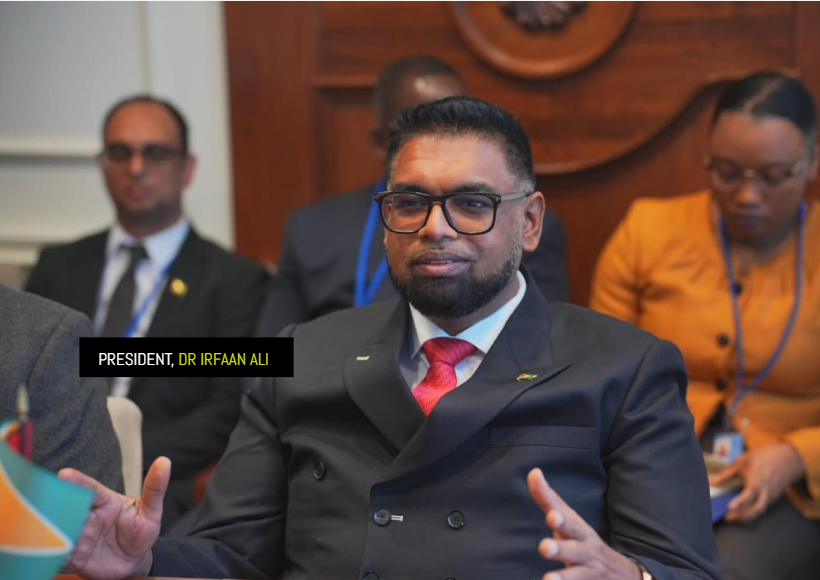As the world continues to advance digitization efforts, it is an absolute necessity for the Guyanese and wider Caribbean’s judiciary system to adapt to the rapidly evolving era of artificial intelligence (AI). This was underscored by President, Dr. Irfaan Ali on Wednesday as he noted the challenges and opportunities presented by AI-driven digitization, particularly concerning the judiciary’s ability to ensure fairness and justice.
At the opening of the First Legal Conference on Criminal Justice Reform held this morning, the head-of-state highlighted the complexities introduced by AI. President Ali explained that the integration of AI into various sectors has made it increasingly difficult for the justice system to determine the authenticity of information.
“It is important, especially in this era of AI, that our judges and the judiciary itself are given the necessary attention. Because two years from now, our judges will be in an environment in which they will quickly need to decipher what is real and what is unreal based on arguments presented…what is AI-generated and what is not AI-generated,” he affirmed.
This new reality he said, necessitates the development of advanced mechanisms, support systems, and the deployment of cutting-edge technology to aid judges in their decision-making processes.
“And that requires a whole different mechanism, a whole different support system. A whole different deployment of technology to support their work,” Ali elaborated. “So, this era of digitization and modernization that is taking place within the judiciary is really– we’re just scratching the issues at the moment.”
The President’s remarks come at a critical time as countries worldwide grapple with the rapid pace of technological advancements. For developing nations like Guyana, the challenges are particularly pronounced. Ali pointed out that the nation’s journey towards modernization has been marked by a continuous struggle to keep pace with global developments.
“From a national perspective, we are way behind the curve when it comes to digitization and unfortunately, the developing world is faced with this crisis continuously, and it’s an output of the environment in which we operate,” Ali said. He traced the historical context of this struggle, noting the impact of colonial rule and the subsequent efforts to catch up with the industrial and service revolutions.
“When we were fighting to come out of colonial rule and slavery and indentureship, the rest of the world was moving towards the industrial revolution and manufacturing.
“By the time we got out of that, and we started to struggle to come up to be competitive in food production and manufacturing and industrial development, the rest went to the services industry. By the time we struggled to get there, you’re at digitization. And we are always forced to match the speed of change globally without understanding where we started, or where was our starting point,” he stated.
Already, artificial intelligence’s increasing has affected citizens and their judicial systems across the world. This has raised significant concerns about unfair sentencing and the potential for wrongful convictions. Take for example the COMPAS (Correctional Offender Management Profiling for Alternative Sanctions) algorithm, used in several U.S. states to assess the risk of defendants reoffending. A 2016 investigation by ProPublica revealed that COMPAS was biased against black/ african-american defendants, who were often incorrectly labeled as high-risk compared to white defendants.
Over the years there has also been the issue of deepfake technology being used to create misleading evidence. In 2019, a Chinese app developer was involved in a case where deepfake technology was used to scam money from a businessman by impersonating a close friend during a video call. This incident highlighted to many courts the potential for deepfakes to create false evidence that could be used maliciously in judicial contexts.
Nevertheless, Ali’s address highlighted the critical need for proactive measures to ensure the judiciary is well-equipped to navigate the challenges posed by AI.
The conference itself will serve as a platform to discuss and devise strategies to reform and modernize the criminal justice system in Guyana, ensuring it remains robust and capable in an increasingly digital world.













